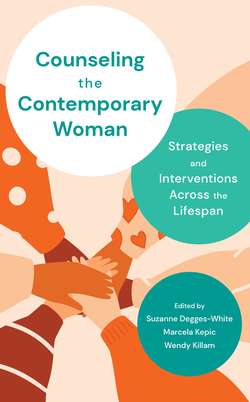Читать книгу Counseling the Contemporary Woman - Suzanne Degges-White - Страница 13
На сайте Литреса книга снята с продажи.
Ethnic and Racial Identity
ОглавлениеRace and ethnicity heavily influence gender socialization, norms, and experiences (Collins, 2000; Crenshaw, 1989, 1991). The invisibility of racial privilege for white women often results in limited recognition of the racialized experience of gender, reflecting a common critique of white feminism. It is from this position of white womanhood that McIntosh (1988) identified her privileged racial reality as a white woman with her simultaneous oppression as a woman. Gender roles and expectations can be influenced by multiple cultural factors, including interconnected race, ethnicity, and religion. For example, Marianismo, a Latinx cultural construct rooted in the Christian figure of the Virgin Mary, exemplifies cultural expectations associated with virtue, religiosity, self-sacrifice, and silencing the self (Caplan & Whittemore, 2013; Lara-Cinisomo, Wood, & Fujimoto, 2018). These cultural gender roles may be rigidly binary and androcentric in nature, which can also marginalize women within their own racial cultural community. These gender roles often set extremely high expectations for women of color to show strength, manage multiple roles through self-sacrifice, and serve as the nucleus of their families and communities (Abrams, Javier, Maxwell, Belgrave, & Nguyen, 2016; Abrams, Maxwell, Pope, & Belgrave, 2014). Similarly, Jones and Shorter-Gooden (2003) found that 40 percent of black/African American women downplayed their strengths and skills to accommodate black/African American men. A recent study identified gendered racial themes in Asian American women’s experience that differed from perceptions experienced by all Asians (Mukkamala, & Suyemoto, 2018). Abrams et al. (2016) argued that even with similarities among women of color, there is a need for culture-specific understanding of women’s experiences.
